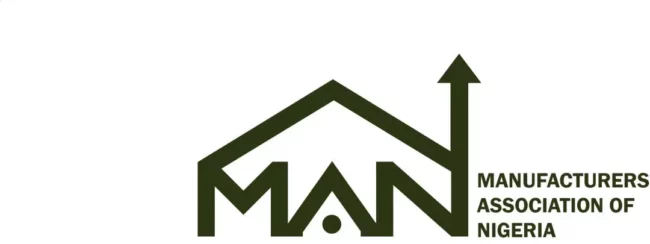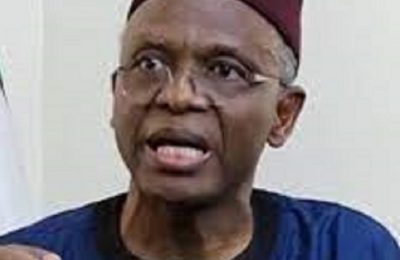
The Manufacturers Association of Nigeria (MAN) has described the 2.18 per cent growth rate recorded in the nation’s manufacturing sector in the third quarter of 2024 as posing a significant danger to the federal government’s industrialisation agenda and its efforts at attaining a $1 trillion economy by 2030.
The association, in its position paper on the National Bureau of Statistics (NBS) GDP Report for the third quarter of 2024, stated that the services sector has continued to boom at the expense of employment and production in the manufacturing sector, as shown in the report.

The development, it warned, may thwart the economy’s aspirations of reducing forex demand pressures, promoting value addition, and generating mass employment.
The group, in the paper signed by its Director General, Mr Segun Ajayi-Kadir, also noted that poor performance of the sector may not help the government’s efforts at increasing export earnings, driving industrial-led growth, and ensuring sustainable development.
“By implication, achieving a $1 trillion economy by 2030 is apparently difficult, as the growth rate clearly falls short of the 6 per cent average targeted by the present administration.”
“An in-depth examination of the report, regarding the sector performance, shows that the fastest-growing manufacturing sub-sectors were: Chemical & Pharmaceutical Products (3.97%), Food, Beverage & Tobacco (1.76%), Wood & Wood Products (2.16%), Cement (2.30%), Pulp, Paper and Paper Products (2.09%), Electrical and Electronics (2.61%), and Non-Metallic Products (1.75%).”
“Also, the top five contributors to manufacturing output were Food, Beverage & Tobacco (6.78%), Cement (3.73%), Electrical and Electronics (6.03%), Non-Metallic Products (2.87%), and Chemical & Pharmaceutical Products (6.92%). Food, Beverage & Tobacco, Chemical & Pharmaceutical Products, and Cement were the only sub-sectors that made the list of both the top five growing and contributing sub-sectors in the second quarter of 2024.”
“In general, the report revealed that the growth of the manufacturing sector grew slowly year-on-year at 0.92 per cent and decelerated quarter-on-quarter by 0.35 per cent.
Similarly, its contribution to GDP in the 2024 third quarter was 8.21%, lower than the 8.42% recorded in the third quarter of 2023 and lower than the 8.46% recorded in the second quarter of 2024,” it stated.
MAN, therefore, attributed the underwhelming performance of the sector to the harsh effect of hostile economic policies, which, it noted, had largely constrained the country’s goal of rapid industrialisation, leaving the economy struggling for survival.
It also blamed the federal government for its passive response towards tackling the countless challenges facing the nation’s manufacturing sector.
The association, therefore, described the decline in the real growth of the manufacturing sector as a clear indication of the detrimental impact of the prevailing macroeconomic policies.
“It is evident that inflation has been a significant factor in undermining the growth of the manufacturing sector, as the sector has been particularly vulnerable to the unstable macroeconomic environment, exacerbated by recent economic reforms,” it stated.
While commending the ‘higher growth’ recorded in the reviewed period, the association, however, believed the growth is still relatively modest, adding that with the prevalence of high unemployment and poverty, a double-digit GDP growth rate has become imperative to achieve inclusive growth that would benefit all segments of society.
In a similar development, the association, in its third-quarter report released on Monday, called on the Central Bank of Nigeria (CBN) to pause the interest rate hikes and review the impact of the policies it had so far rolled out to enable it to effectively control the consequences of such policies and make adjustments.
The manufacturers’ group also called on the government to honour the unsettled $2.4 billion forex forward contract to further increase market confidence and promote Foreign Direct Investment (FDI).
It added that for the government to effectively tackle the burning issues holding down the economy, it has become imperative to review the electricity tariff hike to only a 100% increase of the previous price, while also calling for the introduction of an outage compensation mechanism to improve electricity access.
While calling for the freezing of the exchange rate at N1000 to a dollar in the calculation of import duties for production inputs, the association also wants manufacturers to be categorised as strategic users of gas to remove the gap between what manufacturers and electricity generation companies pay per cubic foot of gas.
Commending the Central Bank of Nigeria (CBN) on its efforts at curbing inflation and stabilising the naira, the group, however, described the macroeconomic headwinds being experienced in the country as proof that the monetary policy instruments have not fully addressed the nation’s broader economic challenges, including high energy prices and infrastructure deficits, among others.
READ MORE FROM: NIGERIAN TRIBUNE







